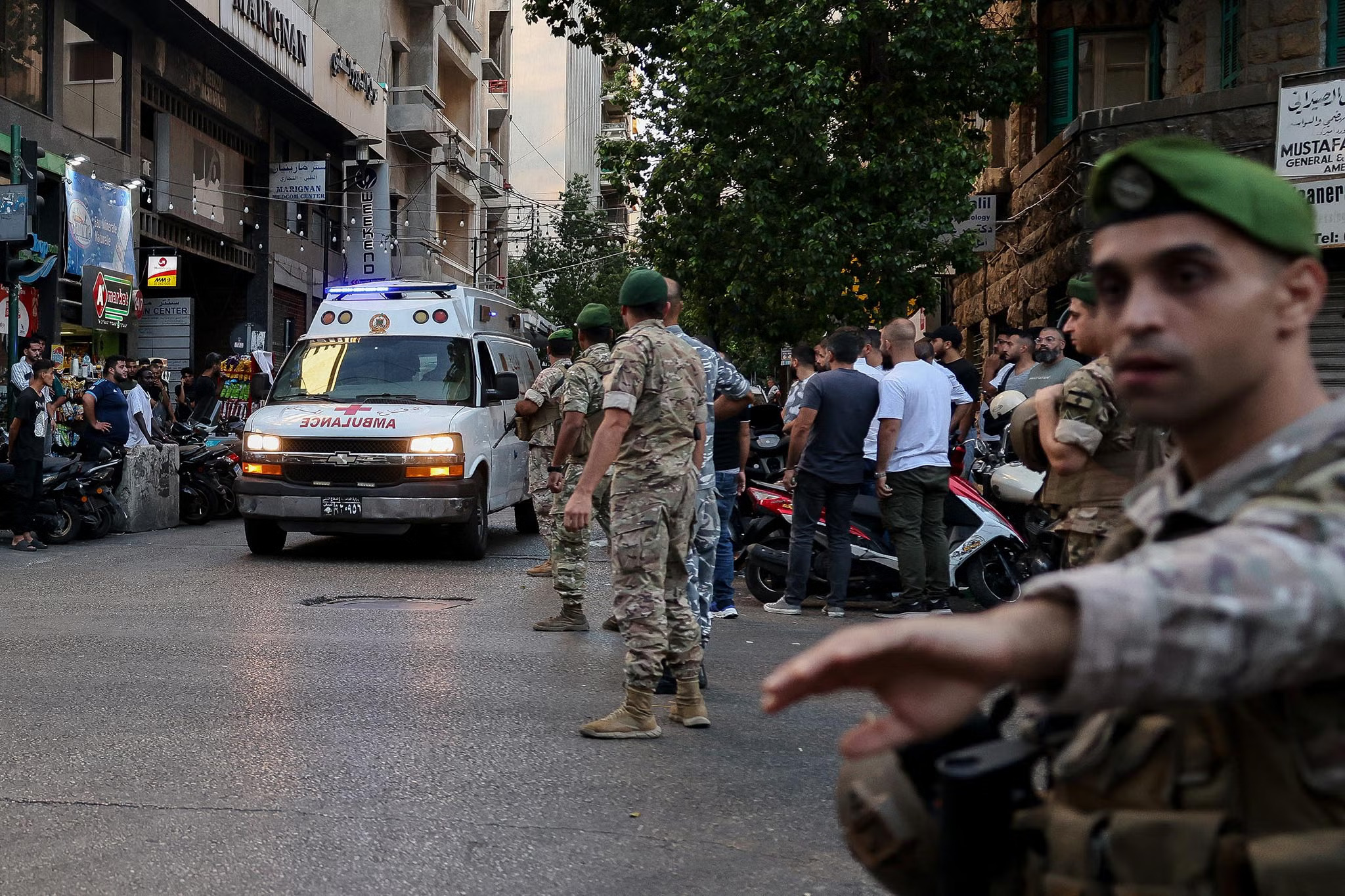
In an operation believed to be orchestrated by Israel, Hezbollah operatives across Lebanon and Syria were targeted yesterday, September 17, by a series of explosions triggered by compromised pager communication devices. The blasts caused significant casualties, killing at least 11 Hezbollah members and injuring over 4,000, with many in critical condition. The attack, described as a major security breach, marks one of the largest coordinated strikes against Hezbollah in recent history.
While the attack predominantly targeted Hezbollah strongholds in Lebanon, casualties were also reported in Syria. According to Agence France-Presse, several Hezbollah fighters were injured in Syria after their communication devices exploded. These incidents occurred in multiple locations, including the Idlib, Quneitra, Damascus, and Daraa governorates, where local sources reported injuries among Hezbollah operatives. At least five Hezbollah members arrived at Al-Sanamayn Military Hospital in Daraa following explosions linked to the pager devices.
In Damascus, a car explosion on the road between Al-Mowasat Tunnel and Kafr Sousa roundabout severely injured four people, reportedly due to the detonation of wireless communication devices inside the vehicle. The car was believed to be carrying a member of Hezbollah at the time.
Additionally, local reports from the Sayyida Zeinab area south of Damascus confirmed that at least seven Hezbollah members were injured in a similar explosion of pager devices. These incidents indicate the wide-ranging impact of the attack, which spanned both Lebanon and Syria.
Iranian state media reported that Tehran’s Ambassador to Lebanon, Mojtaba Amani, was injured in the attack. The Iranian Mehr News Agency indicated that Amani was wounded when his pager exploded in what it described as an Israeli cyberattack targeting Hezbollah’s communication networks. His involvement in the attack highlights the deep cooperation between Iran and Hezbollah and the long reach of the attack.
While the operation appeared to be aimed at Hezbollah, its indiscriminate nature resulted in numerous civilian casualties. Several children and bystanders in proximity to Hezbollah operatives were injured or killed in the blasts. Hospitals across Lebanon are reporting an influx of patients, many of whom are non-combatants caught in the explosions. The Lebanese Ministry of Health confirmed that at least 11 people, including an 8-year-old girl, have died as a result of the blasts, and more than 400 patients are in critical condition.
Hezbollah blamed Israel, condemning the “reckless and indiscriminate assault” that caused widespread destruction and loss of life. The group vowed retaliation, warning that Israel would “certainly receive just retribution for this sinful aggression, whether it expects it or not.” Hezbollah described the incident as an attack not only on its members but also on civilians, calling it a “breach of Lebanese sovereignty.”
The Lebanese government swiftly condemned the attack, describing it as an “Israeli crime and a violation of national sovereignty.” In a statement, the government confirmed it had begun urgent diplomatic efforts with other nations and the United Nations to hold Israel accountable for what it termed an “ongoing crime.” The Council of Ministers has decided to keep its meetings open to monitor the unfolding crisis.
While Israel has not officially commented on the attack, statements from a former Israeli military official hinted at the country’s involvement. Major General Yiftah Ron-Tal, former commander of Israel’s ground forces, alluded to the operation in an interview with Channel 14, suggesting that the Israeli military had shifted its focus northwards from Gaza to Hezbollah’s strongholds in Lebanon.
“We put them in shock,” Ron-Tal said, referring to the widespread damage inflicted on Hezbollah’s operational capabilities. He claimed that “hundreds of Hezbollah members are no longer with us” and that the group’s command and control systems were severely compromised. Ron-Tal characterized the bombings as a strategic opportunity to weaken Hezbollah’s military capabilities, one that Israel should seize to change the dynamics of the conflict.
The scale and precision of the attack indicate a substantial intelligence operation, likely involving the infiltration of Hezbollah’s supply chain for pager communication devices. According to reports from the New York Times, Israel had tampered with the devices, which a Taiwanese company manufactured. It implanted small amounts of explosive material next to the batteries. These explosives were remotely triggered causing the simultaneous explosions across Hezbollah’s networks in Lebanon and Syria.
This operation, seen as one of the most severe breaches of Hezbollah’s security in years, may also mark a new phase in Israel’s efforts to undermine the group. Israeli intelligence officials reportedly saw the operation as a means to cripple Hezbollah’s leadership and communication infrastructure before any future military escalation.








